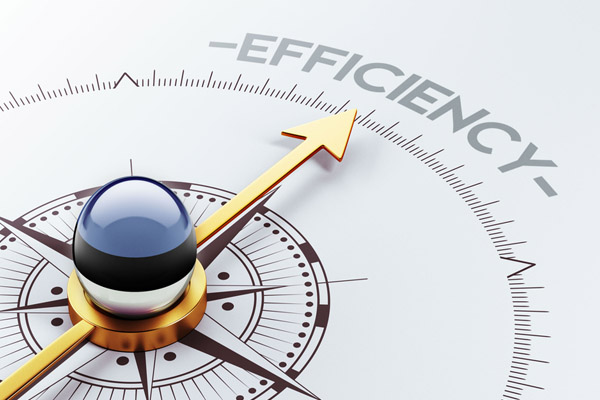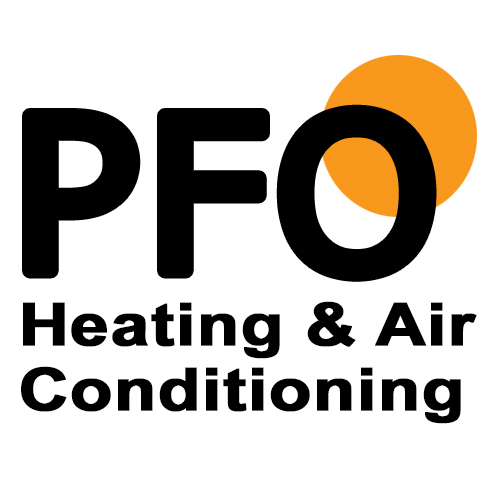
On chilly days, your home’s heating system plays a vital role in enhancing indoor comfort. It safeguards you from cold-related ailments and prevents winter plumbing problems like frozen pipes. An ideal heating system should be energy-efficient, quiet, and durable. An energy efficient heater offers advantages like lower energy bills, improved heat distribution, and reduced maintenance costs.
How to Tell If Your Heater Is Energy-Efficient
Contents
When investing in a heating system, start by calculating your home’s square footage to select the appropriate heating capacity. According to the Department of Energy (DOE), older systems usually achieve 56% to 70% energy efficiency, while modern ones can reach up to 98.5% efficiency. Heating system efficiency can decrease by up to 5% annually, depending on maintenance. Here are three factors to assess whether you have an energy efficient heater or not.
Heating System Age
Residential heating systems usually last between 15 to 20 years. Although regular maintenance can extend their efficiency over time, wear and tear inevitably leads to reduced performance. A heating unit’s age often indicates its efficiency; older systems tend to be less efficient, while newer ones offer improved energy performance.
If you are unsure about your home heating unit’s energy efficiency even after considering its age, consult a certified HVAC technician for guidance.
Energy Expenses

While your energy bills may vary seasonally due to heating needs, the overall annual energy expenses should remain relatively consistent. Assuming all other factors remain unchanged, compare your current energy bills with those from the same period last year to identify any unexplained surges in heating costs.
An increase in energy expenses can signal reduced efficiency in your heating system. Inefficient heaters require more effort and longer runtimes to heat a space adequately.
AFUE Rating
The Annual Fuel Utilization Efficiency Ratio (AFUE) is a rating that indicates a heater’s efficiency. It quantifies efficiency by dividing the heat output by the fuel input, reflecting the amount converted into heat. For example, a 95% AFUE rating means the heating unit transforms 95% of the fuel into heat while the remaining 5% is vented.
Most heating system manufacturers provide the AFUE rating on labels. This allows you to assess whether you have an energy efficient heater by checking the label. If it is not available, search for the model or serial number and use it to find the AFUE rating on the manufacturer’s website. By examining the AFUE rating, you can determine the energy efficiency of your system.
How To Improve Your Heating System’s Efficiency
A low-efficiency heating system can compromise comfort in colder weather, increase energy bills, and be prone to frequent breakdowns. Depending on the type of fuel used, an inefficient HVAC unit can contribute to a larger carbon footprint. To enhance heating efficiency, consider these tips:
- Regularly Clean and Replace HVAC Filters: Clogged filters force the furnace to work harder. Clean or replace air filters as needed to ensure smooth airflow.
- Proper Insulation: Proper insulation retains heat, reducing the workload on your heating system.
- Schedule Annual Inspections: Regular maintenance by a qualified HVAC contractor can address issues and boost heating efficiency.
- Programmable Thermostat: Use a programmable thermostat that adjusts heating based on your needs, reducing fuel consumption when heating is unnecessary.
Why You Should Replace an Outdated Heater

There comes a point when routine maintenance no longer improves heater efficiency. When this happens, consider a home heating unit replacement to enjoy these benefits:
- Enhanced Indoor Comfort: With its high efficiency, a new heating unit can more adequately heat your home. This is crucial for superior comfort during colder days, which older heaters may struggle to provide.
- Reduced Breakdowns: Older HVAC units are prone to more frequent breakdowns due to wear and tear. Replacing your heating unit can help you avoid these frequent disruptions and minimize repair costs.
- Savings on Heating Costs: New heating systems are typically highly efficient, leading to lower energy bills. This cost-saving advantage is often a guaranteed benefit of upgrading to a new heating system.
Conclusion
Determining the energy efficiency of your heating system involves assessing its age, AFUE rating, and reviewing energy bills. If your system proves inefficient, contact a professional HVAC contractor for inspection and necessary maintenance to enhance efficiency. In some cases, outdated heaters may require replacement.
Call PFO Heating & Air Conditioning For All Of Your HVAC Requirements

PFO Heating & Air Conditioning delivers top-tier heating and cooling solutions to the Greater Princeton, New Jersey. Our team comprises certified technicians with extensive expertise in providing HVAC tune-ups, installations, repairs, and replacements to ensure optimal system performance.
At PFO Heating & Air Conditioning, we offer the most competitive and cost-effective rates for heating and cooling services in the area. Our repair and maintenance services enhance comfort, elevate energy efficiency, and lower HVAC expenses. If you need HVAC repairs or system replacement, our team can recommend the ideal solution that aligns with your budget. All our HVAC services are backed by a satisfaction guarantee. Contact PFO Heating & Air Conditioning today to schedule your appointment and benefit from our complimentary, in-home estimates.
Click here to contact us now or call us at (800) 253-9001 to find out more! Click the link to view our service area.



